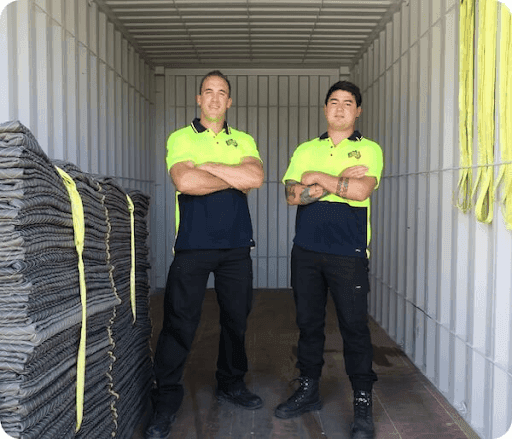
Mobile Self-Storage: A Sustainable Solution for Storage Needs
As our society increasingly focuses on sustainability, exploring ways to reduce our environmental impact is important. One such solution is mobile self-storage.
The best self-storage in Brooklyn, Melbourne, allows individuals and businesses to store their belongings or inventory in a portable storage unit brought to their location, eliminating the need for transportation to a storage facility.
Advantages of Mobile Self-Storage
Reduced Transportation Emissions
Traditional storage facilities require customers to transport their belongings in their vehicles, which increases traffic congestion and emissions. Mobile self-storage units are delivered directly to the customer's location, eliminating the need for transportation to and from a storage facility. This results in a significant reduction in transportation emissions, as there are fewer vehicles on the road.
Energy Efficiency
Mobile self-storage companies typically use energy-efficient vehicles to transport storage units. These vehicles are designed to use less fuel and emit fewer pollutants than traditional trucks or vans. Additionally, because the storage units are delivered directly to the customer's location, the company does not need to maintain a large fleet of vehicles, reducing its carbon footprint.
Reduced Waste
Traditional storage facilities often require customers to purchase packing materials such as cardboard boxes, bubble wrap, and peanuts. These materials are often used once and thrown away, contributing to waste and pollution. Mobile self-storage companies often provide reusable storage containers or boxes, reducing waste generated. Additionally, because the storage units are delivered directly to the customer's location, they do not need to make multiple trips to purchase packing materials, reducing waste.
No Land Use Impact
Traditional storage facilities require large amounts of land to build and maintain. This land use can have negative impacts on local ecosystems and wildlife habitats. Mobile self-storage units, however, do not require any additional land use. They can be placed on existing parking lots or driveways, reducing the impact on local ecosystems.
Reduced Energy Use
Traditional storage facilities require a significant amount of energy to maintain. Climate-controlled units, lighting, and security systems all require electricity to operate. On the other hand, mobile self-storage units require very little energy to keep. Because they are delivered directly to the customer's location, there is no need for climate control or lighting systems. This reduces the energy required to maintain the units and reduces the carbon footprint of the storage company.
Flexibility for Customers
Mobile self-storage offers flexibility for customers, allowing them to store their belongings or inventory at their own pace without needing transportation to a facility. This reduces the need for multiple trips and transportation, reducing emissions and environmental impact.
Smaller Carbon Footprint
Mobile self-storage units are typically smaller than traditional storage units, meaning they have a smaller carbon footprint. This is because smaller units require less energy and can be transported more efficiently, reducing transportation emissions.
Reduced Traffic Congestion
Mobile self-storage can reduce traffic congestion and associated emissions by eliminating the need for customers to transport their belongings to a storage facility.
Reduced Risk of Environmental Hazards
Traditional storage facilities can pose environmental hazards, such as leaking chemicals or hazardous waste. Mobile self-storage units, however, are typically more secure and less likely to pose environmental risks.
Sustainable Packaging Materials
In addition to providing reusable storage containers, mobile self-storage companies can also offer sustainable packaging materials, such as biodegradable packing peanuts or recycled cardboard boxes. This reduces the amount of waste generated and promotes sustainability.
Energy-efficient Lighting
Mobile self-storage companies can install energy-efficient LED lighting in their units, reducing energy consumption and costs while providing adequate lighting for customers.
Improved Air Quality
Traditional storage facilities often have poor air quality due to using chemicals and cleaners. Mobile self-storage units are typically cleaned with environmentally friendly products, improving indoor air quality and reducing the risk of health hazards.
Reduced Noise Pollution
Traditional storage facilities can pollute noise, especially during loading and unloading. On the other hand, mobile self-storage is typically quieter and less disruptive to the surrounding environment.
Reduced Packaging Waste
Mobile self-storage companies can encourage customers to use eco-friendly packaging materials, such as biodegradable bubble wrap or reusable containers. This reduces the amount of waste generated and promotes sustainability.
Reduced Need for Expansion
Traditional storage facilities often require expansion over time to accommodate more customers. Mobile self-storage units, however, can be easily transported to new locations as needed, reducing the need for costly expansions and associated environmental impacts.
Community Outreach
Mobile self-storage companies can engage in community outreach efforts by partnering with local organisations to promote sustainability or participating in neighbourhood cleanup events. This helps raise environmental awareness and promote a more sustainable future.
Conclusion
As our society prioritises sustainability, it is important to consider innovative solutions like mobile self-storage that can help us reduce our environmental impact. Mobile self-storage is an environmentally friendly alternative to traditional storage facilities. By reducing transportation emissions, using energy-efficient vehicles, providing reusable storage containers, and reducing land use and energy use, mobile self-storage can contribute to a more sustainable future.
Appreciate the creator